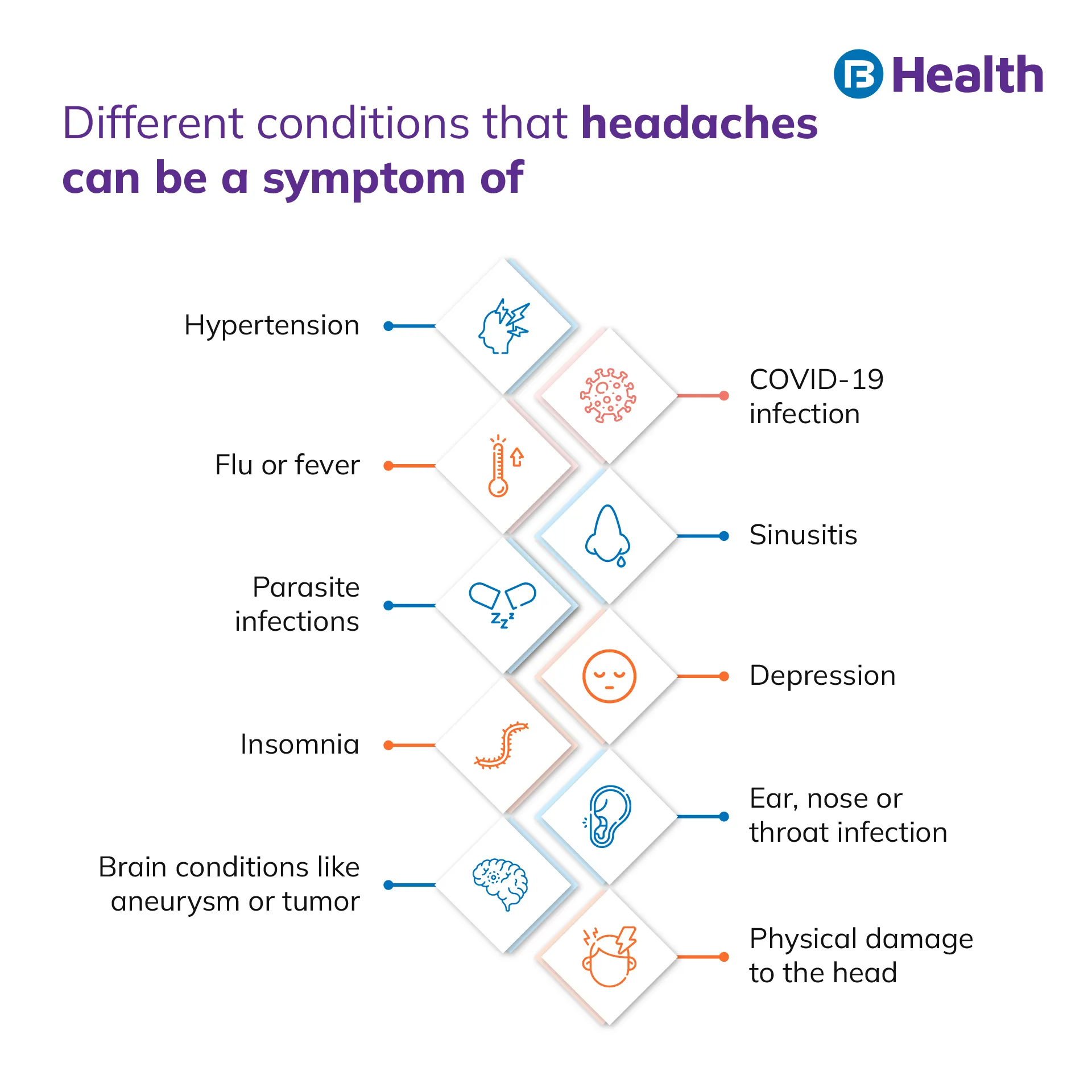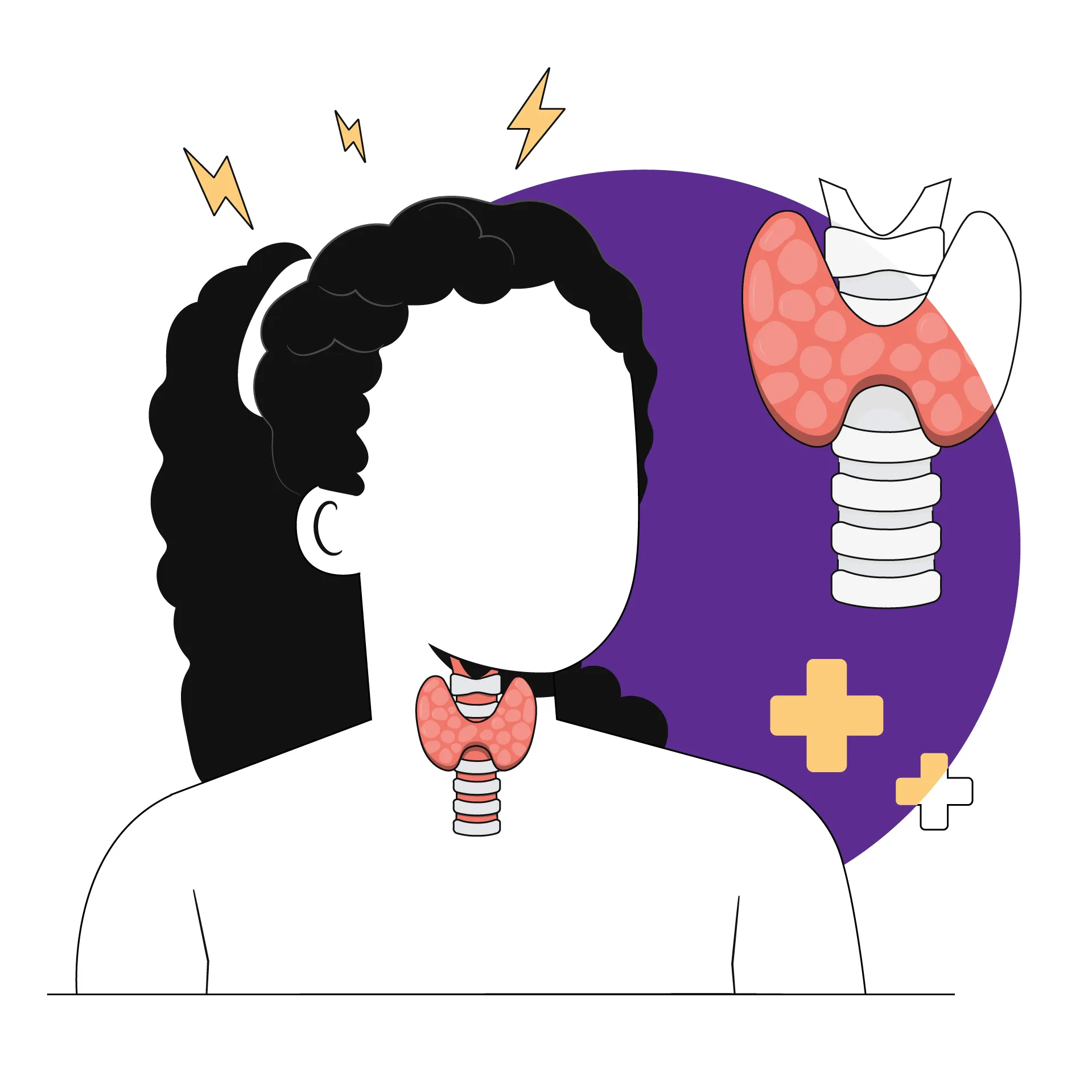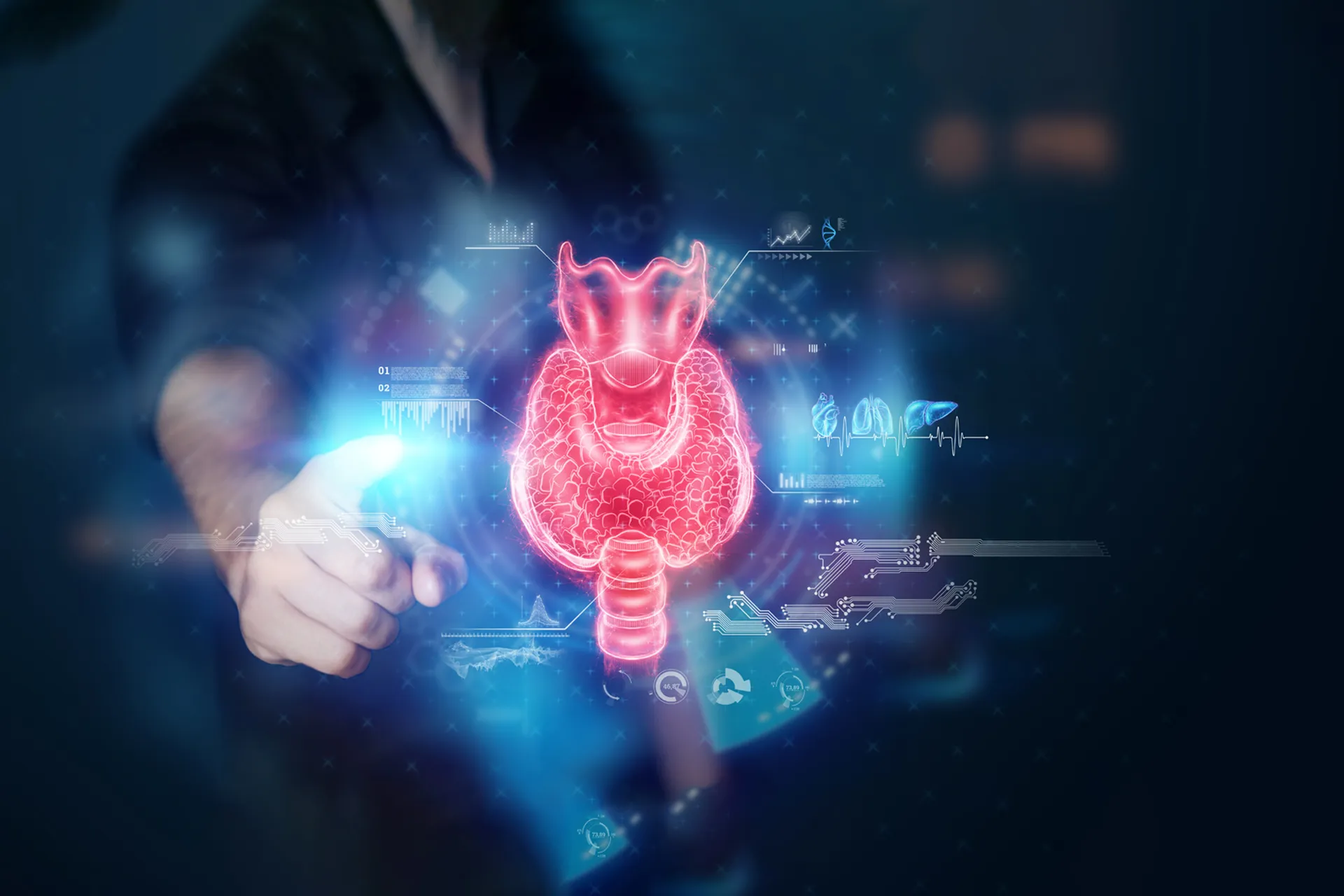Thyroid | 6 min read
Thyroid and Headache: 5 Top Links That Connect Them
Medically reviewed by
Table of Content
Synopsis
There are multiple links that connect thyroid and headache. Headaches may be caused by hypothyroidism and those with this disorder may be more at risk of developing headaches and migraines.
Key Takeaways
- Disorders of thyroid and headache have multiple links and connections
- For migraine, thyroid disorders like hypothyroidism may be responsible
- Experiencing a headache in thyroid disorders is also a usual occurrence
Disorders of thyroid and headache are common health conditions, which seem to have some links that connect them. If you have a migraine, thyroid disorders like hypothyroidism can be its underlying cause. It is also quite common to experience the symptom of a headache in thyroid disorders, and this can develop into migraines.
Multiple studies have established a strong connection between thyroid and headache – hypothyroidism and migraines, to be specific. However, it is still unclear whether both of these health disorders are caused by the same set of risk factors or if the conditions are responsible for one another.
A study conducted in 2013 discovered that 3% of participants complaining of migraine and 1.6% suffering from tension headaches also had hypothyroidism. On analyzing the data of this subset of participants, the researchers discovered that in about 96% of cases, migraine episodes were followed by hypothyroidism [1]. What’s more, it was found that headaches worsened in those who developed hypothyroidism.
In addition, in a recent study conducted among 100 participants in India over a period of 1 year, 50 participants having migraine issues showed a significant probability of thyroid disorder. It thus concluded that migraine headaches are linked to decreased levels of the thyroid hormone and that this thyroid condition and migraine headaches can be considered comorbidities [2].
Read on to learn about the links between thyroid and headache and learn about the two conditions.
Additional Read: Know About Migraine HeadachesHow are thyroid and headache linked?
Low thyroid hormones affect both your blood pressure and your metabolism and may thus be a cause of headaches. On the other hand, having frequent headaches increases the risk of developing hyperthyroidism as it affects the function of your immune system, which can cause your thyroid to malfunction.
In fact, migraines are more common in those who produce low thyroid hormones. When you get treated for this, your headaches may also decrease in occurrence by almost 80%. As per studies, 21% of people who experience frequent headaches and 41% of those who have migraines are more prone to hypothyroidism [3].

Symptoms of thyroid and headache
Remember that though headache is the key symptom to identifying migraines, all headaches are not migraines. In case you have a migraine, you may come across symptoms like vomiting, nausea, vertigo, dizziness, a heightened sensitivity to your sense organs, and visual disturbances before the onset of the disorder.
For hypothyroidism, you may find it difficult detect signs as it resembles many other health conditions. With a thyroid panel test, you can get a confirmed result. You can consider the test if you are experiencing the following signs:
- Tiredness
- Obesity
- Dry hair
- Irregular periods
- Chronic pain in the muscle or joint
- Heart rate slowing down
- Infertility or other fertility disorders
- Mental health disorders like depression
Risk factors for migraine and hypothyroidism
Now, take a look at the risk factors for migraine.
- Excessive stress: High stress leading to burnout or having experienced something that spiked your stress can lead to migraine.
- Sexual identity: As per studies, females are more than two times ahead when it comes to being at risk of experiencing migraine in comparison to males. According to experts, the cause of this can be attributed to female hormones.
- Tobacco exposure Be it direct or indirect, any type of exposure to tobacco, especially smoking, can spike your chances of being diagnosed with migraine in the near future.
- Genetics: Genes are significant factors in deciding whether one will develop a migraine or not. However, the exact nature of their influence remains a matter of debate.
Those who are older in age or have some sort of disabilities are also at increased risk for this disorder.
Next, take a look at the risk factors to watch out for hypothyroidism.
- Post-delivery phase: If you have given birth to a baby within the last six months, you are at high risk of developing hypothyroidism.
- Old age: If you are a senior citizen, there are high chances for you to develop this condition.
- Medical history: Specific types of medications and treatment procedures can put you at more risk of developing hypothyroidism. These include antithyroid medicines, radioactive iodine, radiation therapy, thyroid surgery, and more.
- Genes: As per research, women have a higher probability of developing any thyroid disorder than men.

How both these diseases are treated
Note that there is no effective remedy for migraine, but you can ease its symptoms and reduce the number of episodes with treatment. On the other hand, you can treat hypothyroidism with medications prescribed by your doctor. These medications usually control your thyroid hormones. Take a look at the treatment methods for both diseases.
Managing migraine
Having a migraine episode can be agonizing. What you can do to heal the headache is drink a lot of water. Make sure to drink 3-4 liters of water per day. Apart from that, you can rest in a dark and solitary room to keep yourself away from all sorts of disturbances to your ears and eyes.
When it comes to the treatment of migraine with medication, there are two types: preventive and abortive. Preventive medications are effective in reducing your risk of getting a migraine episode. They may include beta-blockers, anticonvulsants, antidepressants, calcium channel blockers, and more. On the other hand, abortive medications to treat migraine include oral medications for nausea, anti-inflammatory drugs, pain relievers, and more.
Managing hypothyroidism
Once a blood test to measure thyroid hormones like TSH, T3, and T4 indicate hypothyroidism, doctors may prescribe a medication made of a synthetic thyroid hormone. It is usually available as pills and helps to balance the levels of thyroid hormones. If you have an underactive thyroid or your thyroid gland was surgically removed, this medicine can be effective for you.
Now that you know the links between thyroid and headache and how to identify and treat them, you can work towards getting diagnosed and starting treatment. To know more about thyroid hormone function, thyroid cancer symptoms, and other important facts related to this gland, opt for an online doctor consultation on Bajaj Finserv Health. This app or platform makes it easy for you to connect to reputed specialists near you. Alongside this, you can also practice yoga for thyroid stimulation and give your body the tools it needs to boost your health.
References
- https://thejournalofheadacheandpain.biomedcentral.com/articles/10.1186/1129-2377-14-S1-P138
- https://pubmed.ncbi.nlm.nih.gov/33397849/
- https://americanheadachesociety.org/news/are-you-more-likely-to-develop-hypothyroidism-if-you-have-a-history-of-headaches/
Disclaimer
Please note that this article is solely meant for informational purposes and Bajaj Finserv Health Limited (“BFHL”) does not shoulder any responsibility of the views/advice/information expressed/given by the writer/reviewer/originator. This article should not be considered as a substitute for any medical advice, diagnosis or treatment. Always consult with your trusted physician/qualified healthcare professional to evaluate your medical condition. The above article has been reviewed by a qualified doctor and BFHL is not responsible for any damages for any information or services provided by any third party.





